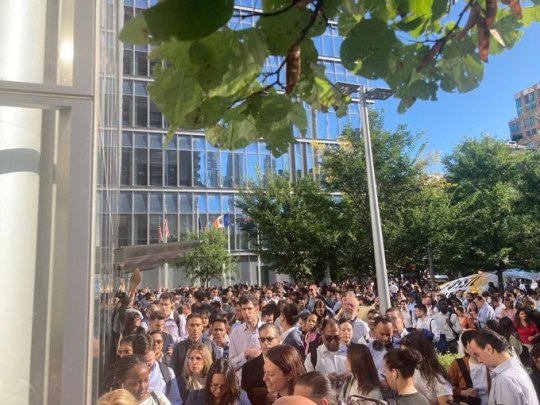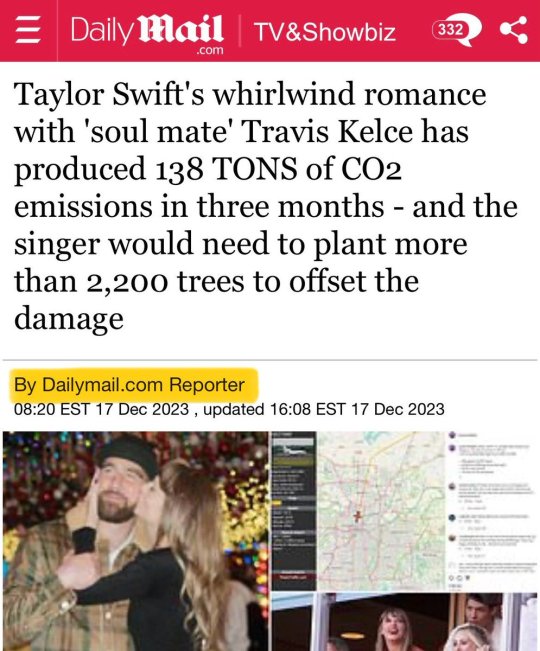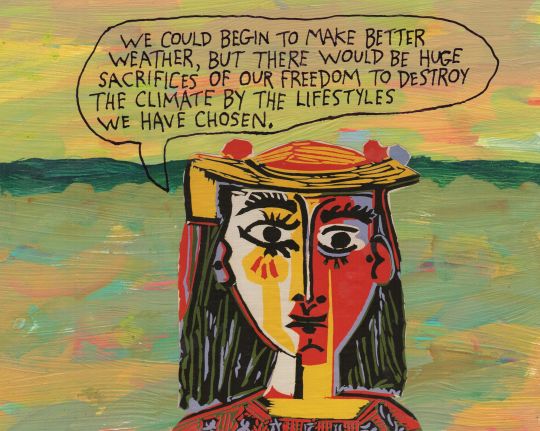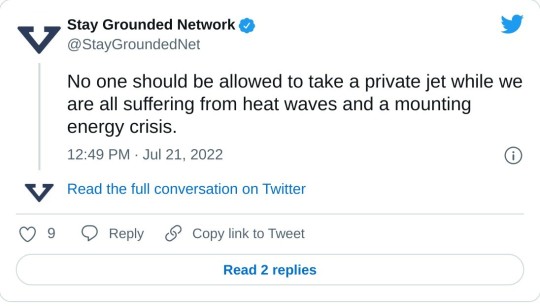#Climate-warming Emissions
Text
















Sorry for the bad photo quality, Tumblr doesn't like posts this long.
#ramblings#politics#communism#socialism#climate change#not a reblog#when our turn comes#we shall not make excuses for the terror#environment#enviromentalism#carbon emissions#carbon footprint#global warming#climate collapse#anti capitalism#radical left#left wing#long posts#long post#color of the sky#hot take#this took like 20 minutes to upload because Tumblr kept crashing#and like 90 minutes to make
43K notes
·
View notes
Text
#COP28#Indian Minister#Climate Talks#Equity#UN Negotiations#Global Climate Action#Developing Country#Energy-related Emissions#World's Third-biggest Emitting Country#China#US#COP28 Summit#Dubai#Fossil Fuel Use#Fossil Fuels#Wealthy Countries#Climate-warming Emissions#Industrial Revolution#Climate Justice#Bhupender Yadav#Narendra Modi#COP33 Talks#2028#Pramod Thomas#December 10#2023#India#Environment Minister#Impasse#Climate Summit
0 notes
Text
"Marginal improvements to agricultural soils around the world would store enough carbon to keep the world within 1.5C of global heating, new research suggests.
Farming techniques that improve long-term fertility and yields can also help to store more carbon in soils but are often ignored in favor of intensive techniques using large amounts of artificial fertilizer, much of it wasted, that can increase greenhouse gas emissions.
Using better farming techniques to store 1 percent more carbon in about half of the world’s agricultural soils would be enough to absorb about 31 gigatons of carbon dioxide a year, according to new data. That amount is not far off the 32 gigaton gap between current planned emissions reduction globally per year and the amount of carbon that must be cut by 2030 to stay within 1.5C.
The estimates were carried out by Jacqueline McGlade, the former chief scientist at the UN environment program and former executive director of the European Environment Agency. She found that storing more carbon in the top 30 centimeters of agricultural soils would be feasible in many regions where soils are currently degraded.
McGlade now leads a commercial organization that sells soil data to farmers. Downforce Technologies uses publicly available global data, satellite images, and lidar to assess in detail how much carbon is stored in soils, which can now be done down to the level of individual fields.
“Outside the farming sector, people do not understand how important soils are to the climate,” said McGlade. “Changing farming could make soils carbon negative, making them absorb carbon, and reducing the cost of farming.”
She said farmers could face a short-term cost while they changed their methods, away from the overuse of artificial fertilizer, but after a transition period of two to three years their yields would improve and their soils would be much healthier...
Arable farmers could sequester more carbon within their soils by changing their crop rotation, planting cover crops such as clover, or using direct drilling, which allows crops to be planted without the need for ploughing. Livestock farmers could improve their soils by growing more native grasses.
Hedgerows also help to sequester carbon in the soil, because they have large underground networks of mycorrhizal fungi and microbes that can extend meters into the field. Farmers have spent decades removing hedgerows to make intensive farming easier, but restoring them, and maintaining existing hedgerows, would improve biodiversity, reduce the erosion of topsoil, and help to stop harmful agricultural runoff, which is a key polluter of rivers."
-via The Grist, July 8, 2023
#agriculture#sustainable agriculture#sustainability#carbon emissions#carbon sequestration#livestock#farming#regenerative farming#native plants#ecosystems#global warming#climate change#good news#hope
4K notes
·
View notes
Text
#emissions#climate change#hope#good news#global warming#carbon dioxide#climate anxiety#environmental anxiety
501 notes
·
View notes
Text
I've been reading 'The Climate Book' from Greta Thunberg, and I have to talk about it. I've never seen a book written so brilliantly and desperately, pleading for awareness, for action, for survival. I thought I was aware of the climate change, but there was a vast amount of information I did not know. I'll start from the ones I did.
I knew that the climate has already changed, and will continue to change until a lot of animal species will go extinct, and a big amount of human beings will suffer, end up impoverish, misplaced, in starvation, or dead. I knew the culprits were the companies that refused to stop taking down forests, burning fossil fuels, promoting lifestyles of consumerism, over-consumption, generated the amount of waste that the planet could not safely consume or store. I also knew that one of the biggest pollutants were big oil, animal and plant agriculture, fast fashion industry, travel industry, and the capitalistic system that enabled 1% of humanity to own and over-consume 90% of the resources available to us. Knowing this made me feel powerless, because even as I boycott all of it, I can't do much else, and I'm not enough to stop what is going on. I am merely a drop in the ocean - which is what Greta points out as well. But, Greta doesn't think we're powerless.
This book is incredible in the sense that it goes over and beyond to think practically. It doesn't despair, it doesn't panic, it doesn't think any other way but how to practically and effectively bring change, what are the options and possibilities, what is true and what is propaganda, how to avoid millions of deaths and extinctions that are sure to come, if we do nothing. Greta has analyzed all action that is 'being done', and found out most of it was fraud, cheating, lying. All of the governments and companies who were bragging about reduced emissions, or offsetting emissions, have simply found ways to outsource them and to emit them in another, poorer country. The amount of emissions has actually increased.
She has also interviewed the world leaders, and people responsible and suffering from climate change - and these are the results: Nobody feels responsible, nobody feels as if it's their turn to change, to reduce, to do anything to help it. Even interviewing people whose livelihood was taken away from them due to climate change, who have lost their living environments already, their trees and animals and fields and fertility and soil, when asked if they would be willing to work ecologically from now on, with reduced or low emissions, their answer was 'Why should we? It's not fair, they took from us and enjoyed, while we suffered. We won't stop until we have what they have. We deserve it.'
With this information, Greta has found a truth of how humans influence each other - we imitate. If we see someone else doing something, or having something we find desirable, we also want it. We look at ourselves in relation to other people that surround us, we take responsibility according to what others around do, and we hold ourselves accountable only as much as others do. And this is why we have a power that goes beyond individual action, beyond simply lowering our own emissions and boycotting companies that are responsible for pollution - we are able to influence others. We're able to influence the media, which forms public opinions, and using the media, force into action those who benefit from polluting the planet.
What I didn't know, and this book taught me, was that from the times humans started to hunt, they didn't only have a great effect on the environment, they were the absolute leading agent on it. Soon after hunting the megafauna into extinction, the environment started to change not just because we affected it, but because we directed it to. We caused the extinction of many species throughout the past, by hunting, taking wild spaces for our own use, polluting water sources, changing the climate, spreading predatory species, like cats and rats, and we didn't stop there. We changed the landscapes of forests and fields, into human-used agricultural land that was effectively deadened for the purpose of wildlife. We domesticated, and then farmed animals, to such extreme degree, that right now what is left of the wildlife, is mere 12-15% of all animals out there. More than 80% of current animals by weight living on earth, are put there by animal agriculture, meant for human consumption. That is absolutely insane. We did the same with the wildlife environment as well – there is now only 3% of the forests on earth, that are still considered intact. We changed the landscape, not only slightly, but by erasing most of it, making it unusable to animals, insects or wild plants, appropriated only for agriculture, grazing, and human-only environments. And, we dug up and released so much carbon into the air, it is coming close to the amount that we had on the earth, at the time of dinosaur extinction, which wiped out a third of the planet's species. And we keep doing it, even knowing what will happen, knowing that every single time this happened in the past, it created mass extinction.
I wasn't aware how serious and extreme the changes we made were. Knowing what is going out, makes it very clear why we have a crisis, it would be crazy to expect not to have one. These changes were not reported, nobody was asked to approve of them, there were no regulations or limits, no environmental studies on consequences, and it keeps going. We keep increasing the demand for agriculture and animal products, increasing our consumption even though we are running out of the natural resources used to create the products. And it is not our fault. Most of the food and meat created by destroying this land, will go to waste, for the profit of the corporations. The world will keep living in starvation, despite so much of natural life getting destroyed for food, despite the climate crisis being caused, partly by our food production.
This doesn't mean we can't sustainably feed ourselves anymore, it just means we can't do it the way we're used to. It just tells us we need to use more resilient and less land and water consuming food. Plant based diets demand less soil and emit less carbon, gardening reduces the amount of agricultural space needed to feed us, supporting and protecting wildlife wherever it's still thriving, will save both soil, animal species, and biodiversity that is very quickly fading from the planet.
I've also learned that even as we're close to the tipping point, but haven't reached it yet. Whatever we do right now that stops us from reaching it, will mean the difference between life and death to the future generations of people, animals, and plants. If we manage to make changes now, to stop the ice from melting past the tipping point, we can save millions of lives, that would end in certain death otherwise. If we can create policies that are not volountary but binding, we have a chance to save livable land, animal and plant species, biodiversity, and human quality of life. It's not too late to act, in fact, this is the vital time to act, and we're the only ones who can do it.
And the way you can act is not just by reducing waste, reducing the amount of energy you consume, reducing animal-products in your food and refusing to waste and throw away usable goods, but by being public about it. By making it clear it's a positive improvement on your life, on your quality of life, that it's both moral and enjoyable, both inspiring and encouraging others to do the same. Some of us have bigger impact on others than we might know, and if we start doing it and visibly enjoying it, there are others who will follow.
This book has taught me immense amount of science behind the climate crisis, and gave me incentive to do more than just live and feel helpless, I need to do more. I recommend this book to anyone wanting to learn more, and wanting to act more. I will be from now on, writing more about ecology and preserving the planet, and how to do it. If we're the directors of where this planet is going, we have to be so intentionally, with knowledge, wisdom and awareness of what we are doing. We can do good, and humans have been doing good, any time there's been wisdom, awareness and intention in how we're shaping the environment. And if anyone wants the book in the audio form, send me a message and I will give it to you.
#Greta Thunberg#The Climate Book#book review#climate crisis#climate change#global warming#actions to stop global warming#impacting others to understand and prevent the worst of the worst#carbon emissions#lying politicians
598 notes
·
View notes
Text
283 notes
·
View notes
Text

[USA, New York]
100's of bankers are now outside the Citi HQ, locked out of their workplace.
Climate Activists are standing arm-in-arm with our partners, blockading every single door.
Citibank are the top financier of oil and gas in the Amazon and the second largest funders of all fossil fuels.
These bankers are climate criminals. They deserve not a moment of peace.
#usa#america#newyork#new york#new york city#activism#class war#co2 emissions#co2#methane#carbon dioxide#climate change#global warming#climate crisis#climate action#climate emergency#climate#climate and environment#eat the rich#eat the fucking rich#fuck the gop#fuck the police#fuck the supreme court#fuck the patriarchy#antifa#antiauthoritarian#anti capitalism#antinationalist#ausgov#politas
158 notes
·
View notes
Text

Mildly amusing that the reporter was to afraid to post his name.
145 notes
·
View notes
Text
something to remember as you listen to the tortured poets department :

#taylor swift#the tortured poets department#taylornation#swifties#swifttok#the tortured poets society#carbon emissions#global warming#climate activism#climate change#climate crisis
34 notes
·
View notes
Text
This is why I don't agree with blanket statements like "humanity is a cancer upon the Earth". The majority of environmental destruction has been perpetrated by western countries over the past few centuries of colonialism and industrialization, and we are the primary source of ongoing demand for resources like timber and fossil fuels. Blaming all of humanity as a whole is short-sighted, to say the very least.
While indigenous people are not a monolithic entity and each community has their own ethics regarding the land, we are seeing increasingly that when indigenous land managers are in charge, the result is a much more sustainable conservation of the land and its resources. The indigenous peoples of the Amazon have been caring for these places for thousands of years, and allowing them to continue those relationships is having a positive effect overall.
#indigenous people#indigenous rights#land back#decolonization#environment#ecology#conservation#science#scicomm#nature#environmentalism#climate change#global warming#climate emissions#climate crisis#anthropogenic climate change
49 notes
·
View notes
Text

We could make better weather, but there would be huge sacrifices of our freedom to destroy the climate by the lifestyles we have chosen. -- Michael Lipsey
#fossil fuels#carbon#climate change#global warming#co2 emissions#coal#air travel#cruise ships#oil#methane#SUVs#pickup trucks
68 notes
·
View notes
Text
not getting an air conditioner and dying of extreme heat so that celebrities can fly in their private jets <3
#anti capitalism#anti billionaire#billionaire#billionaires#anti billionaires#eat the rich#eat the fucking rich#anti private jets#climate change#global warming#carbon emissions#taylor swift#jay z#beyonce#rihanna#kylie jenner#kim kardashian#bill gates#jeff bezos
18 notes
·
View notes
Text
I'm sorry do you people expect her to fly Commercial??? She can't go to dinner with her friends without stalkers, paparazzi and crazed fans showing up!🤦🏾♀️...pls watch this video
Credit: @shaniodessa
#taylor swift#private jet#free palestine#jet#carbon emissions#hypocrites#global warming#climate change#swifties#defend taylor swift#taylor swift hate#haters#anti taylor swift#activist#carbon credits#taylor swift jet#hot celebs#legend#taylor#swift#jack antonoff
7 notes
·
View notes
Text
"The prospects of the world staying within the 1.5C limit on global heating have brightened owing to the “staggering” growth of renewable energy and green investment in the past two years, the chief of the world’s energy watchdog has said.
Fatih Birol, the executive director of the International Energy Agency, and the world’s foremost energy economist, said much more needed to be done but that the rapid uptake of solar power and electric vehicles were encouraging.
“Despite the scale of the challenges, I feel more optimistic than I felt two years ago,” he said in an interview. “Solar photovoltaic installations and electric vehicle sales are perfectly in line with what we said they should be, to be on track to reach net zero by 2050, and thus stay within 1.5C. Clean energy investments in the last two years have seen a staggering 40% increase.” ...
The IEA, in a report entitled Net Zero Roadmap, published on Tuesday morning, also called on developed countries with 2050 net zero targets, including the UK, to bring them forward by several years.
The report found “almost all countries must move forward their targeted net zero dates”, which for most developed countries are 2050. Some developed countries have earlier dates, such as Germany with 2045 and Austria and Iceland with 2040 and for many developing countries they are much later, 2060 in the case of China and 2070 for India.
Cop28, the UN climate summit to be held in Dubai this November and December, offered a key opportunity for countries to set out tougher emissions-cutting plans, Birol said.
He wants to see Cop28 agree a tripling of renewable energy by 2030, and a 75% cut in methane from the energy sector by the same date. The latter could be achieved at little cost, because high gas prices mean that plugging leaks from oil and gas wells can be profitable...
He also called for Cop28 to agree a doubling of energy efficiency. “To reduce fossil fuel emissions, we need to reduce demand for fossil fuels. This is a golden condition, if we are to reach our climate goals,” he said.
Birol stopped short of endorsing the call that some countries have made for a full phase-out of fossil fuels by 2050 to be agreed at Cop28, but he said all countries must work on reducing their fossil fuel use."
-via The Guardian, September 26, 2023
#climate change#sustainability#climate anxiety#climate and environment#climate crisis#climate news#climate emergency#global warming#environment#climate action#iea#international politics#international energy agency#cop28#united nations#greenhouse gas emissions#fossil fuels#renewable energy#solar power#electric vehicles#ev#solar panels#climate tech#good news#hope#hope posting#hopepunk
424 notes
·
View notes
Note
have you seen this?? https://reasonstobecheerful.world/hempcrete-construction-us-building-code-sustainable/
Thank you for sharing this!
Although hempcrete is used in many other countries, it was banned in the US building code for a long time due to the association between hemp and marijuana.
Now that ban has been lifted, which paves the way for this more sustainable building material to be used widely in the states.
"It requires three times less heat to create than concrete, weighs about one-eighth as much as concrete (leading to fewer transport-related emissions), and actively sequesters CO2 — according to one Cambridge University researcher, hemp absorbs between eight to 15 metric tons of carbon per hectare, significantly more than the two to six metric tons typically captured by forests."
#good news#environment#sustainable building#green building#sustainability#climate change#carbon dioxide#hope#sustainable concrete#green concrete#submission#ask#anonymous#tw marijuana#hemp#carbon emissions#environmental despair#ecoanxiety#global warming
902 notes
·
View notes
Text


literally
#i follow an account (in french) that tracks the private jet trips made by billionaires and the co2 emissions they produce and. man. makes#me want to destroy their property and threaten them#ultra-rich people are a fucking hazard#entries#climate change#global warming#capitalism#eat the rich
240 notes
·
View notes